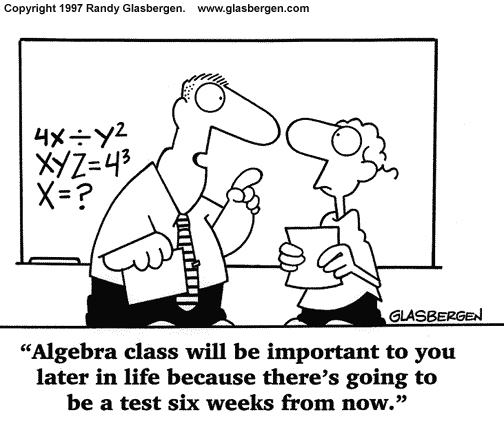Do Schools kill creativity?
Although carried out in a humorous and witty manner, the suggestions and points made by Sir Ken Robinson in the above video are both compelling and relevant to those involved in the education system. Robinson brought ideas to my attention that I hadn't thought about or considered. I love when people can make me think.
"The most useful subjects for work are at the top. So, you were probably streered benignly away from things at school when you were a kid - things that you liked... on the grounds that you would never get a job doing that, is that right? Don't do music, you won't be a musician. Don't do art, you won't be an artist"
This part of Robinson's speech resonated to me because of the truth it holds. I vividly remember teachers and adults guiding me away from my interests and towards what they held as "important" in school - math and language. I always considered myself as a person who had little to no creativity, but I'm beginning to reconsider this notion. I don't think I had the opportunity to explore my creativity.
"Stop humming"
"Put that drawing away"
"Times New Roman, size 12 font, white paper, essay format"
"Stay inside the lines"
Sound familiar? Robinson notes that "We are educating people out of their creative capacities". I have to agree with this concept, as I grew up in an education system where creativity wasn't valued. Why wasn't it valued? If more time and effort was put into encouraging creativity, I feel as though I would be much more passionate in areas of life that I ignored, or put to the side.
Another point discussed by Robinson that stood out to me was the following:
"In the next thirty years more people worldwide will be graduating through education since the beginning of history. / Suddenly, degrees aren't worth anything. / Now, kids with degrees are heading home to carry on playing video games."
One of my biggest phobias has always been the fear of dedicating years of my life in order accomplish a piece of paper (University degree), only to return home and live in the basement of my parent's house. I have friends who have completed their degrees and they are literally (like Robinson says) sitting home and playing video games, or working a minimum wage job. After plugging in the time, the effort, and the money, one would expect to gain employment after finishing University. Unfortunately, this is not necessarily the case anymore. With times changing, we have to adjust. With such competition, we need to educate children to reach their full potential and creative capacities in order for them to succeed. Step one could be the aim for more compassionate teachers and doctors, such as those experienced by Jillian Lane in Robinson's speech.




